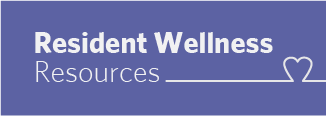Wellness – The BASICS: It comes down to PHISECS
Physical
- Exercise walking counts!
- Sleep accept that you will have sleep loss. Plan now to decrease post-call obligations, speak with family and friends now about this.
- Eat regularly, nutritiously, plan ahead – bring healthy snacks for long days/ on-call
- EtOH if consuming, low risk guidelines – http://www.ccsa.ca/Resource%20Library/2012-Canada-Low-Risk-Alcohol-Drinking-Guidelines-Brochure-en.pdf
- Use OTC and Rx meds appropriately
- Caffeine in moderation if consuming
- Family doctor – Get one (Site Director and Program Coordinator can assist if you cannot find a family doctor) and go see them now, especially if you have any pre-existing health issues. Family doctor should not be your preceptor.
Health Practitioner Survival
- Recognize Boundary Issues (define yours – “what I can do and what I can’t do”)
- Find a resident “buddy” and stay in touch
- Check-in with peers, especially those you think might be distressed
- Acknowledge and appreciate each other
- Know that it is perfectly human to be imperfect…medicine needs your humanity!
Intellectual/Professional
- Vacations – take them
- Identify what brings meaning and value to your work
- List priorities for your professional and personal life and identify ways to reach them
- Think of pastimes or hobbies you’ve enjoyed and identify ways to include some connection with them during your residency (reading, sports, music, art, dance, languages, etc.). Then accept that you will need to prioritize hobbies or activities and maintain a commitment to keep up with at least one in some way during residency .
- Moderate time on Facebook and surfing the net
Social
- Nurture relationship with partner/family (identify what that might look like in residency/think of what quality time with them might be, given the requirements of your rotations). Our partners and families are often the first to notice a compromise in our wellness. The Physician Health Program is an excellent resource for residents and their family members coping with relationship stress. http://www.physicianhealth.com/
- Make list of friends you need to stay in touch with/contact them now/tell them that you care about them and need them in your life and want to stay in touch. You are not less committed but it may look that way based on residency demands
- Make list of family you need to stay in touch with/contact them now/tell them that the next few years will be challenging but fulfilling and that you need their understanding and support.
Emotional
- Identify and correct negative self-talk (“I should have known that”, “I am a loser”, “I’ll never be a good doctor”, “It’s hopeless”). Learning is a process. Accept that you will not know everything, that the residency program chose you because you are a good doctor and will support you in becoming a good family doctor.
- Learn strategies to stay in the present (mindfulness practices) when overwhelmed
- Identify what keeps you calm when you are feeling overwhelmed and incorporate these for coping with distress
- Reflect back on experiences that impacted your resilience (positively and negatively) during the course of the day. How might this affect your future experiences? What needs to be done to restore your sense of well-being?
- Reflect more (looking for different ways to remember something by noticing assumptions we made and choices that might have been missed) and ruminate less (re-experiencing something in the same way, over and over again)
- Use a journal for “healing through writing” or narrative practices
Community
- Associate with people who share your values and interests, who make you laugh and feel uplifted
- Associate less with those who drain your energy or negatively impact your mood
- Create bonds with people with whom you can share your stories and emotions in a genuine way
- Use your cultural or ethnic traditions as a support aide
Spiritual
- Learn to forgive yourself and others
- Participate in spiritual or religious practices that give you comfort (gratitude practices/prayer/meditation)
- Give yourself outdoor time in peaceful settings
- Focus on appreciating the moment at some point in your day
Dr. Linda Reid
Lead Faculty for Behavioural Medicine, Victoria Site Faculty Behavioural Medicine and Resident Support

